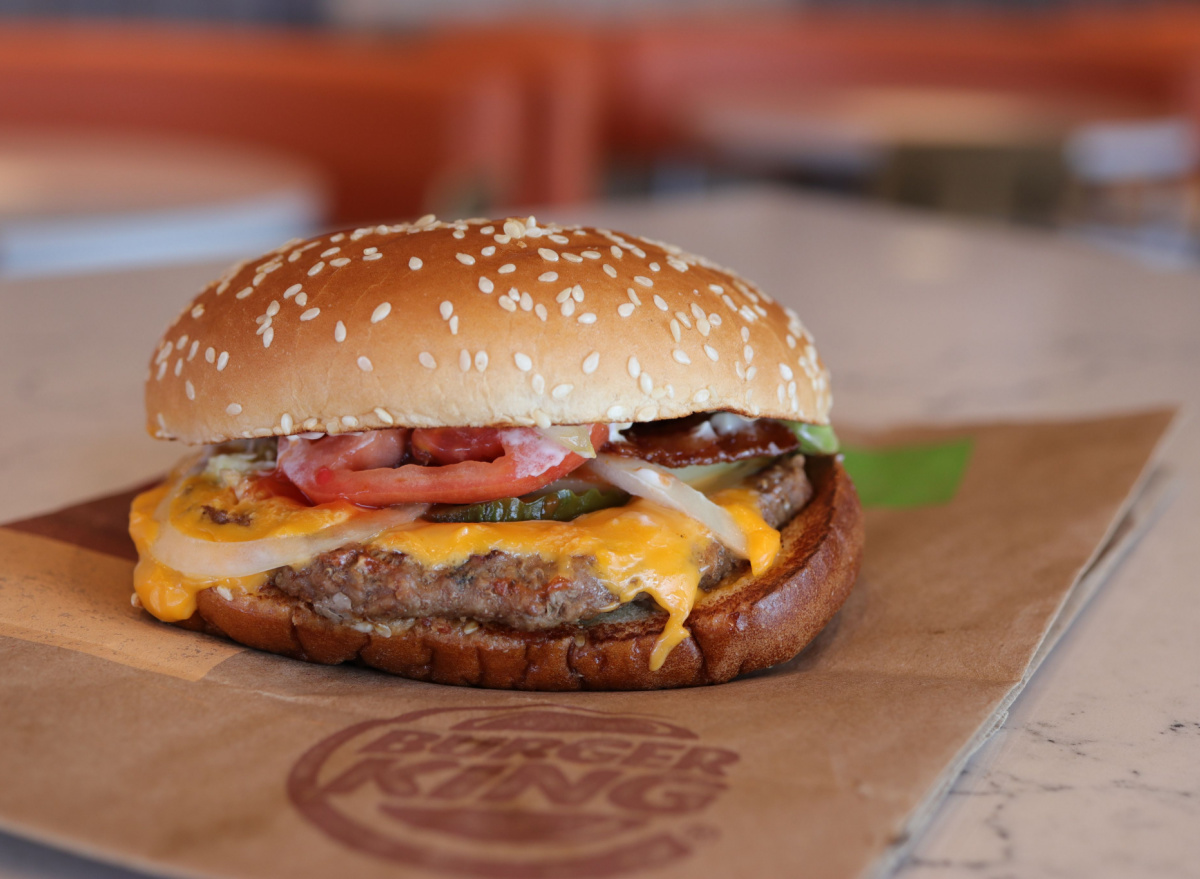Burger King, Popeyes, and Others Pull Out of Major Expansion Plans With This Company

UPDATE – October 13, 2022 at 12:03pm
Following the publication of this article on October 12, 2022, a source from Reef Technologies contacted us to dispute some of the information contained in this post, which was originally reported by Business Insider. Reef maintains that it was their choice not to move forward with the development agreement proposed by RBI, the parent company of Burger King and Popeyes, and that it was Reef that made the decision to replace the handful of pilot locations it had with these brands. Additionally, Reef asserts that it never had a development agreement with Jack in the Box or Del Taco, and the three pilot locations it had with those brands began termination in May.
The original Eat This, Not That! article follows below.
It may be Halloween season, but four major food chains have decided they're in no mood for ghost kitchens. Hailed as the future of food delivery, these restaurant-less kitchen facilities rose to prominence during the pandemic-fueled lockdowns of 2020. Commercial cooking setups designed to prioritize simplicity and speed, ghost kitchens feature no actual storefront and only prepare dishes available for delivery.
Now, however, the first signs of adversity are appearing in this emerging industry. Burger King, Popeyes, Jack in the Box, and Del Taco have all ended their partnerships with Reef Technology—one of the pioneers in the field.
Considered one of, if not the premier ghost kitchen company out there today, the Softbank-backed startup Reef Technology has enjoyed an incredible amount of success in a very short period of time. Reef operates trailers, or "vessels," that prepare food for delivery through licensing agreements with major brands like Wendy's and MrBeast Burger.
Partnerships with these major, instantly recognizable brands are an integral part of Reef's business model, so these latest developments are not encouraging to say the least.
As far as why these partnerships fizzled, Reef representatives have provided no further clues. Meanwhile, a rep for Restaurant Brands International, the company that owns both Burger King and Popeyes, told Business Insider in an email: "I can confirm that the pilot project that Burger King and Popeyes were testing with Reef has ended."
Similarly, a rep for Jack in the Box, which also owns Del Taco, told Insider: "Our trial program with Reef is complete and we continue to evaluate the future of ghost kitchens for our business."
All four of those fast-food brands had previously announced significant plans to expand their delivery efforts via collaborations with Reef. It is also worth noting that Restaurant Brands International became an investor in Kitchen United, a rival ghost kitchen company, in July.
Reef Technology's collaboration with Wendy's has similarly hit a snag in recent months. Back in August 2021, Wendy's announced it would be opening around 700 ghost kitchen locations in partnership with Reef. Fast forward to August 2022, and the iconic fast-food burger brand walked back its projected ghost kitchen count considerably; from 700 to just 100-150 projected "vessels" by 2025. At the time, Wendy's CFO Gunther Plosch explained that U.S. sales from initial Wendy's Reef kitchens had been underwhelming.
The ghost kitchen startup's problems aren't limited to major brand partnerships. Last month, four Reef food vessels were suspended by Austin, Texas, health inspectors. Around the same time, a Reef trailer in Philadelphia was cited for using the wrong retail operating license.
During a town hall meeting last week, Reef CEO and co-founder Ari Ojalvo urged all workers to internally report any actions or conduct that may violate health or permit regulations. It remains to be seen whether the company can turn these setbacks around.









